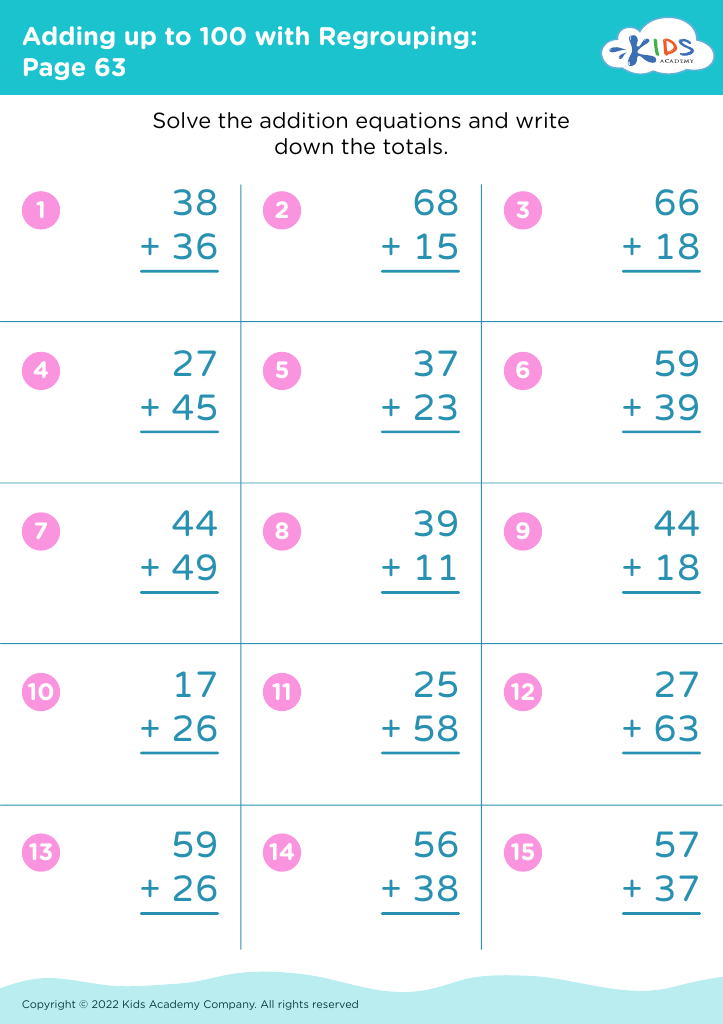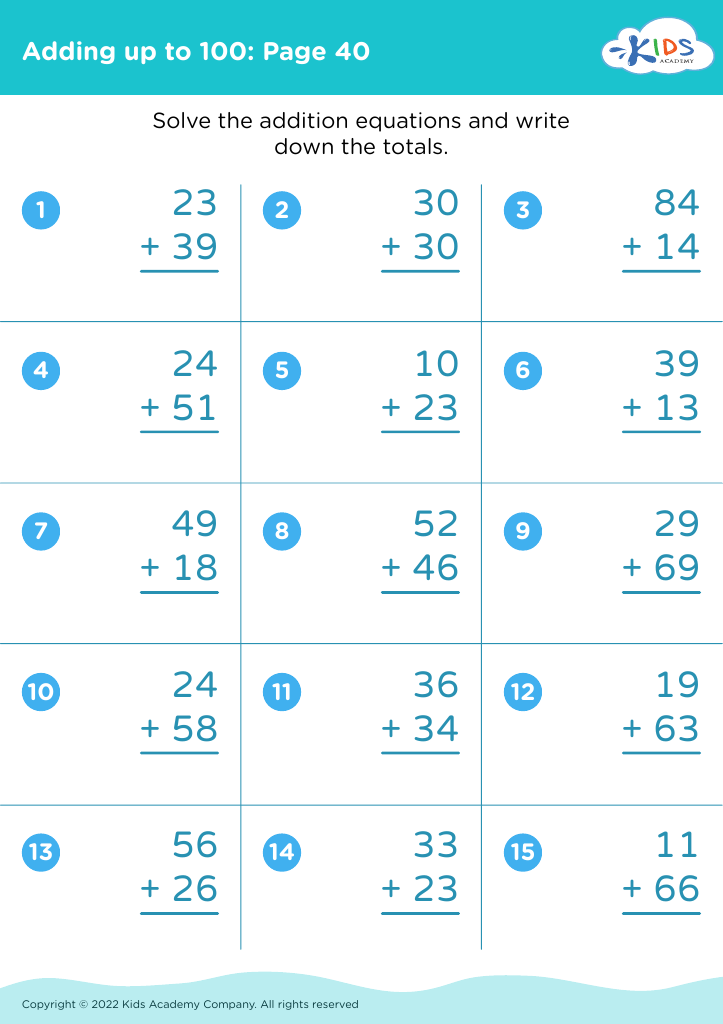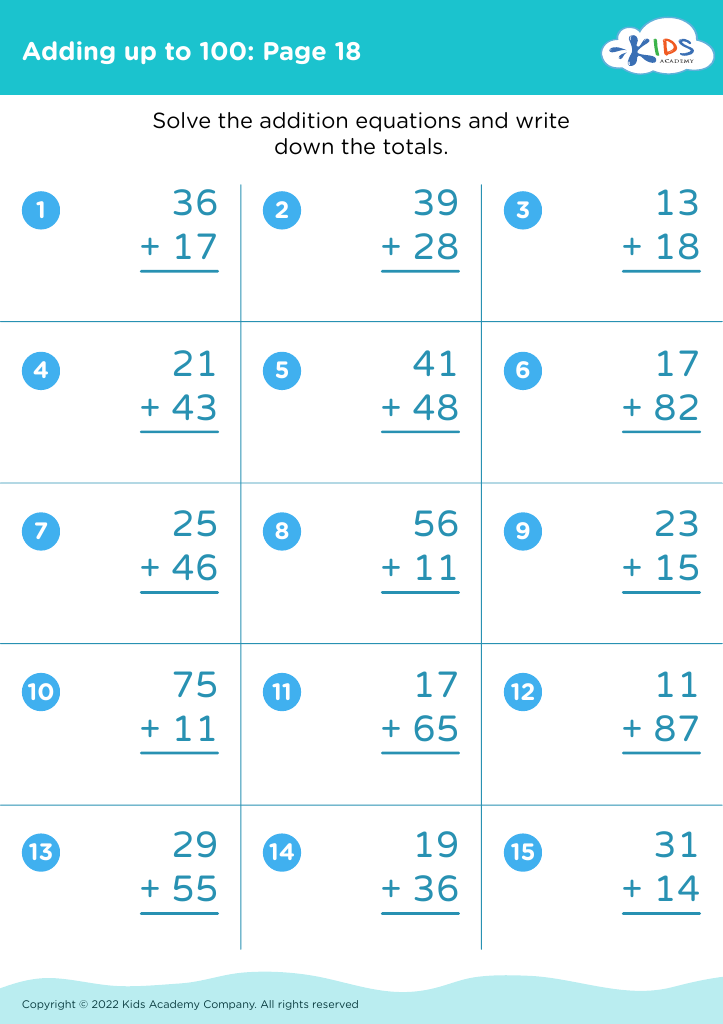Enhance number recognition Adding up to 100 Worksheets for Ages 3-8
8 filtered results
-
From - To
Boost your child's math skills with our "Enhance Number Recognition: Adding up to 100" worksheets, specially designed for ages 3-8. These printable worksheets from Kids Academy offer fun and interactive practice to improve number recognition, counting, and addition within 100. Perfect for young learners, these activities help solidify fundamental math concepts through engaging exercises, colorful visuals, and child-friendly themes. Watch as your little one gains confidence and enjoys the journey of mastering numbers. Ideal for both classroom and at-home learning, our worksheets make math practice a delightful experience for every child.
Enhancing number recognition and the ability to add up to 100 in children aged 3-8 is crucial for several reasons. At this developmental stage, children are laying the foundation for all future mathematical learning. Early proficiency with numbers boosts confidence, promotes a positive attitude towards math, and enhances overall cognitive development.
Number recognition is the first step in learning mathematics. It helps children understand and relate to quantities and numerical symbols, fostering the ability to perform basic calculations and problem-solving. When children recognize numbers effortlessly, they can work with larger numbers and comprehend complex mathematical concepts as they grow.
Adding up to 100 is another vital milestone. It not only helps in basic arithmetic but also introduces children to other essential math skills, such as place value, number sequencing, and mathematical patterns. Early mastery of addition builds the groundwork for more advanced operations like subtraction, multiplication, and division.
For parents and teachers, focusing on these skills encourages a stimulating and supportive environment, fostering intellectual curiosity. Educational games, number songs, and hands-on activities can make learning numbers fun and engaging. Early success in math fosters a lifelong appreciation and understanding of the subject, bridging the gap between home and school learning environments and setting children up for academic success.















%20(1).jpg)











